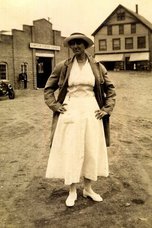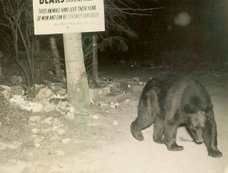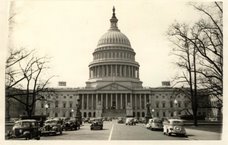1.18.2005
January 30 -- The Cost of a Single Vote
Now (2005) we are consumed with elections in far away places. We have constructed a pseudo reality and broadcast the logical contention that elections outside our borders are tantamount in importance to our own. Are they? Do the good people of New Hampshire, Minnesota, Kansas, and Washington believe that their sons' and daughters' sacrifices to deliver an Iraqi election on January 30 was worth it, no matter the cost?
How much should we pay for a single vote abroad? How many U.S. lives should be laid down to defend the voting opportunity of a single voter in Iraq? I am plagued by these questions because they are mired in the guts of the Push for meeting January 30th elections. The insistence that there is no possibility of postponement is ludicrous. (Perhaps those in the Beltway who shout the loudest for Jan. 30th should be required to send their first-born to Mosul. 'Walk the talk,' say I.]
Sports metaphors continue to appear in this war by news commentators who compared the Fallujah campaign to a memorable years-ago Packer's offense. Sports are ruled largely by those who dictate that games must be played or forfeited; rarely are exceptions made. So you see the dangerous conditions continue in rain, ice, snow, and mud in which men endanger their lives and their families' welfare by performing as gladiators did centuries ago because the 'rules' dictate.
There is no logic to it. Those who place human life at a higher priority than any sports event would gladly say, "It's unsafe; reschedule it, period." The machismo of war and military engagement tend to implode eventually. "Bring it on!" you say? Finally, even a Commander-in-Chief understands that his words were damaging and he has come to regret the power of his own 'loose' language.
As the enemy insurgents pluck off the mayors, the governors, the voters, the security guards, and it goes without saying, our U.S. and coalition troops, we are still hurdling pell-mell towards January 30 as though that is the end goal, the prize. But is the 'prize' merely, in some minds, the demonstration that elections are held on that day? Touchdown!
Back in December, interim Iraqi Prime Minister Allawi suggested that the elections could be spread over a period of several days or weeks improving the likelihood that more Iraqis could vote safely. Joining him in spirit from another microphone elsewhere was Russia's president Vladmir Putin. Even one of the U.S. closest allies, Canada, held an international forum on preparing for the Iraqi election and how to observe its safeguards and rightful principles. Take note: the emergence of Canada in the world's perusal of the sanctity of the election has all the potential of raising hackles between an already-fractured friendship with Canada. Just imagine the possible scenario of U.S. displeasure with Canadian election monitors' disapproval with election proceedings. The risks are great, eh?, when your closest allies also stand close to being disenfranchised over a Tactic towards birthing a republic in the blood-soaked 'Garden of Eden.' Let's call it what it is: the DATE of an election is not the Outcome nor the Results 10-20 years later. It is a 24-hour encapsulated time period arbitrarily selected. January 30th was and is a Tactic of the migration from war (which is far from ending) to 'non-dictatorship' [for lack of certainty, since we can't forecast what Iraq's government will be] while fully occupied by foreign troops. This is hardly conducive to a 'free' election by anybody's definition.
And as the problems associated with elections in Iraq multiply exponentially, the worldwide challenges of counting Iraqi-expatriate vote grows similarly. Right here in the old U.S.A., the bastion of voting pride, honor, and responsibility we have had our own recent history scratching our heads over how to count 'every vote,' now haven't we? So it should hardly come as a surprise that in the U.S., the FIVE voting centers (only New Carrollton, Maryland; Chicago; Detroit; Los Angeles; and Nashville) create hardships for Iraqi expatriates in, say, Dallas, who want to vote, but can't get to their nearest voting place -- Nashville -- in time. Note: no absentee voting is allowed. Would we stand for this in the U.S.? Why do we impose rules that are untenable to us upon other countries and their foreign nationals living abroad here in the U.S. which are unfair and undemocratic, some say. In the time it has taken to finish the final sentences of this post, an AP news reporter filed a column that a suicide bomber's attack killed 3 Iraqi national election candidates. The days and hours are measurable standing between what we know and what lies beyond -- January 30. Whether we delay their election or whether we push onward, continuing to pay the hefty price for something-yet-to-be-defined a world away seems out of the control of the hands of mere mortals, certainly of mere voters in this country. We the people never bargained on the cost of a single vote in Iraq, did we?
1.13.2005
Bangor, Maine
The 110' tall Thomas Hill Standpipe is said to be one of the noticeable landmarks about the 'Queen City' -- apparently shouldn't be missed. I doubt, though, that Yusuf Islam (aka Cat Stevens) got to check that out when he last visited Bangor, Maine.
With more than average curiosity why international flights bound for U.S. airports with alleged or potential terrorists on board are diverted to Bangor, Maine [BGR in airport code], I finally decided I had to understand more about this historic lumber-jack community and how it got the 'honor' of this selection. Beyond geography and history, would Bangor become a part of American pop culture -- a verb, if not a song? You know:
"To-Bangor: to be displaced or diverted to an alternative site far removed from the original destination in the interest of national security."
When did any of you non-Bangorites stop and give BGR a second thought? The airport according to its proud website specifications has the widest runway on the east coast. And if ever needed it is an alternate landing facility for the Space Shuttle. Yet in all of my years of travel, how have I missed Bangor, Maine? Why has this been kept from me?
I think that if we all knew more about Bangor, we would be on our way to understanding more of the rich, bizarre, and creative minds behind characters that appear in novels like those of Stephen King. Yeah, he lives in Bangor too.
I didn't even know about their annual Folk Festival. It seems like such a tourist attraction compared to the old Penobscot River and the Paul Bunyan statue. Old Bunyan. . .well, logging and the paper mills were part of the heritage of this area and still are. Even Congressman Michaud worked at the paper mills and still carries a union card like his ancestors did.
The history of a place is largely lost on passengers who only land and change planes like at BGR. Gosh, so much is out there that they are missing. I bet even 'Cat' wished deep down that he could have had a chance to glance at the stream that gave Thoreau such prosaic reflection. [TIC*] * tongue-in-cheeck
But perhaps one of the most remarkable legacies of Bangor resides right at the airport itself, where this little story started, but not with the passengers whose names appear on the 'No-Fly' lists. No, the truly extraordinary story of a community like Bangor comes to a head around the energy of a volunteer group at the airport called, the "Maine Troop Greeters."
If there ever was a competition among volunteer organizations around the country who could only be recognized for their good works by non-vested, long-distance observers, I'd have to say that the Maine Troop Greeters deserve some sort of High Praise & Recognition Award. At a minimum communities across the country should model their own airports' programs around the initiative of what this group of unsung heroes has accomplished at BGR.
The Maine Troop Greeters began their efforts back in 1991 during the Gulf War. Using veterans (including WWII, Korea & Vietnam) and civilians, they decided that troops and their families (if they were there too) should be shown appreciation, support and comfort by personal, heartfelt greetings when they arrived at Bangor. To that end they have provided the human connection no matter the time of day or night, coffee and snacks, and the all-important cellular phones for communications with loved ones. Newspapers, display cases, maps, reading areas, and relaxation space are all dutifully attended and made 'homey' in the confines of a small, international airport.
For some of the troops, it was their last point before departing the U.S. mainland for an uncertain future abroad, possibly in harm's way. For the reverse traffic, it is often the first stop upon entering U.S. soil and the return to a welcoming nation. Whichever direction they're going, it's the spirit of what's happening by the good works of the generous Maine Troop Greeters that make lasting positive memories. http://www.mainetroopgreeters.com
This all leads me to believe that it's too bad that the 'No-Fly' people are taken to such a nice place as Bangor even if BGR is well-equipped to deal with possible terrorists by their staff and particularistic geographic resources.
I'd like nothing better than the good works of the Maine Troop Greeters be replicated by other airports which have high volume of military traffic and which similarly don't have USO facilities to fill the need. I've been in such airports where nothing exists. I've seen how dismal the long waiting periods can be for troops who are so eager to get home, who are tired, and hungry, and just need a little space out of the normal fray of the airport havoc.
And I think because of all of this, I am more motivated than ever to visit Maine, you know as a real tourist too. It's a long haul for me, living in the West, but I'd kind of like to see the old Standpipe, the Paul Bunyan statue, check out Thoreau's stream, and maybe even catch a day at the Folk Festival in August.
But mostly -- I want to fly into BGR and talk with those Greeters and observe a 'day in the life' of those devoted volunteers. They inspire me.
You too?
1.10.2005
Time for the S.O.P.
"The White House is talking to the senior leadership of each party as candidates' names are vetted for the last remaining cabinet post. The White House Press Corps released a draft of the qualifications still under revision. However, the President is eager to settle on a short list of three candidates within the next two weeks. The new Secretary will have full support, in transition, in the offices of the Department of State, until the department headquarters are ready."
With that we could be proposing candidates and studying them intensely to see what, if anything, they bring to the table. You see, corporate success will not of its own be of great help. Advanced degrees in higher education may be useful but may not be essential. Experience in world travel and foreign languages may be very helpful. Mental acuity, psychological profile, and testimony from 30 years of neighbors may be essential.
The last cabinet post that must be filled by this administration is the most important.
She or he will be the architect of a great future, one that has not been crafted before. She or he must be thoughtful, open, nimble, tolerant, courageous, humble, bold, kind, eager, and above all have 'fire in the belly' for the work at hand.
The work?
For the new Secretary of Peace the work will be awesome and the rewards will be beyond measure.
Just imagine it.
A Special Hell
It's a hard time to find a bright spot in the newspaper lately. Natural disasters, also known as 'Acts of God,' are topping our collective imagination as a species in 2005. Somehow, some way, I think we will mourn, yet work our way through those nightmares. It's the 'Acts of Men,' though, that I'm worried about.
When the people ('peackekeepers' they are titled) who are empowered with responsibility to protect, defend, and provide care and food to victims of savage crises turn their power into tools of brutality, bestiality, control, and oppression then we have new assailants, new warriors, among us. Yet, by structural design, that is what the United Nations has provided throughout the world, particularly in Africa and Asia, over the last 35 years. How could this happen?
The mechanism for recruiting U.N.'peacekeepers from member nations carries with it the expectation that the member nation will carry, in turn, the responsibility for disciplining or punishing those in derelict of duty or in violation of human rights violations. In the recent case of the rapes of 120 women and girls in the Congo, the U.N. gave the member countries (Pakistan, Uruguay, Morocco, Tunisia, South Africa, Nepal & France) and the Congo the names of the violators and asked that they take immediate action against their own people. But that hasn't happened.
U.N. enforcement apparently doesn't have teeth as sharp as those of the jackals of the crimes. And abuses pile up from peackeeping missions around the world for decades that extend beyond rape and into pedophilia and child trafickking/slave trade.
Is the U.N. undersecretary-general for peacekeeping operations troubled by all of this? "Rules and regulations should be tightened," he said. [Jean-Marie Guehenno]
And so that's the mighty United Nations, at least as it protects and defends 50% of the world -- the half born female. After Bosnia and the U.N. tribunal on sex enslavement camps in the 1990's [decimation devices of 'ethnic cleansing'] we learned that survivors would speak out and could hold their assailants accountable before the world community for some of the worst crimes known to humanity.
With or without the United Nations, it seems to me that those survivors of Congolese atrocities at the hands of U.N. peacekeepers should be upheld for holding 'court' in the way of the Old West.
Find the right perpetrators, make the accusations clear, be looking for trees with stout branches and truss the rope in suitable fashion to accomodate the greatest discomfort for the slowest possible, yet assured death as the African sun beats mercilessly.
Let it be for the offenders a place that transcends all language barriers and is known as A Special Hell. Let the message carry widely throughout the world that women and men are intolerant of waiting for justice for the crime of rape as a weapon of war as well as weapon of 'peacekeeping.'



